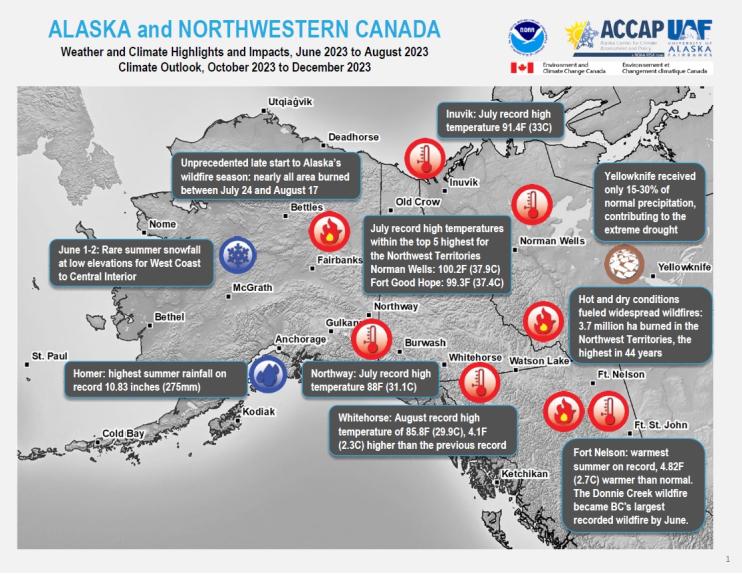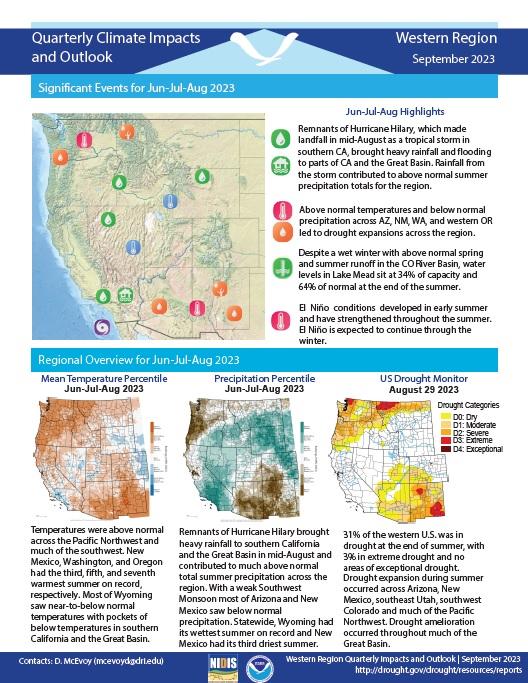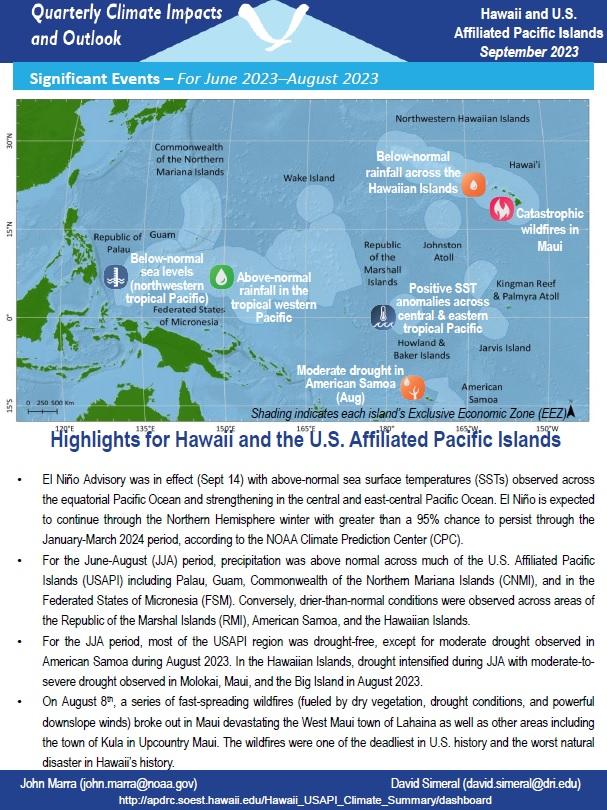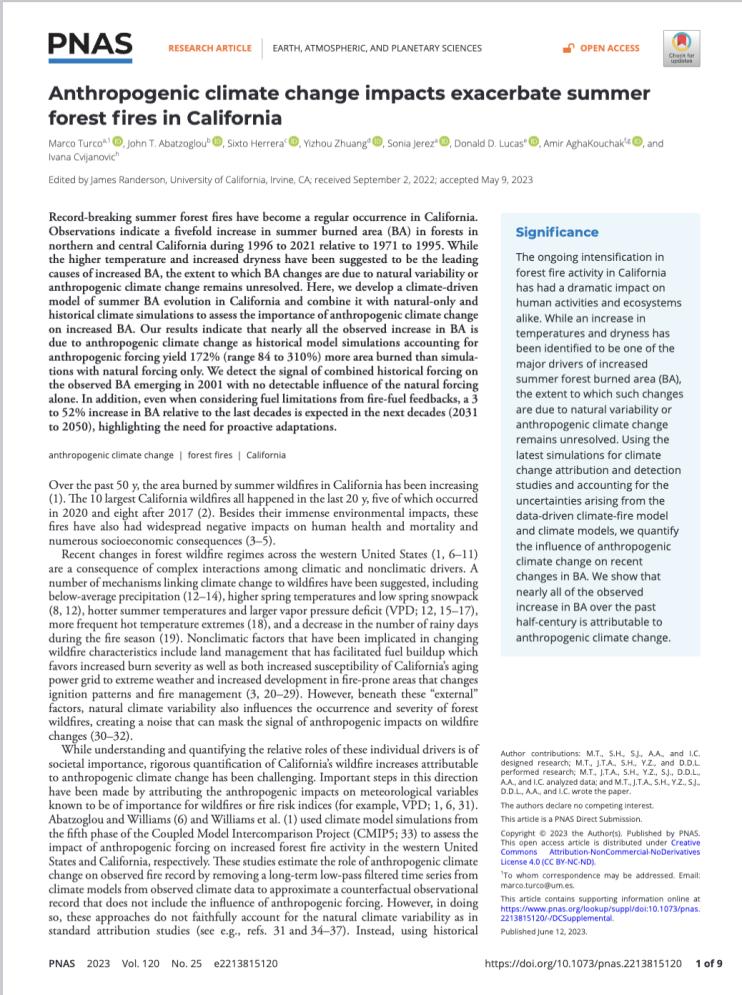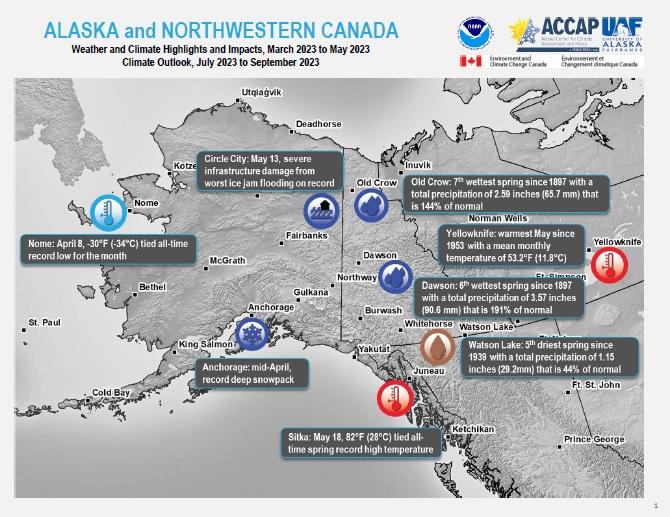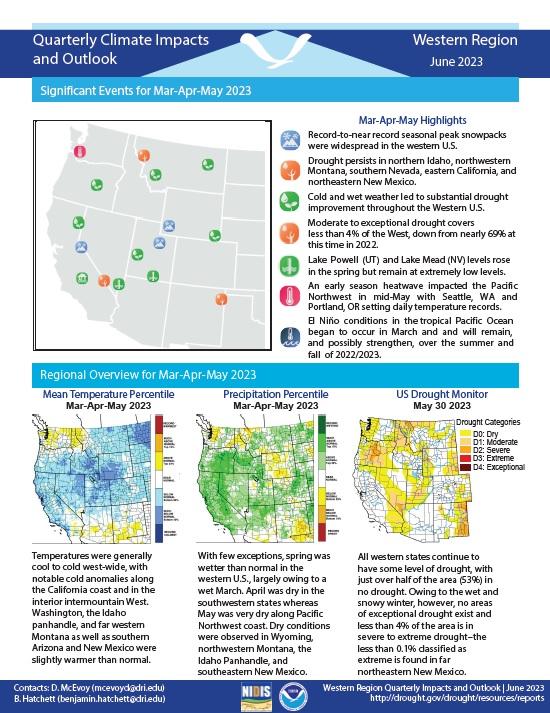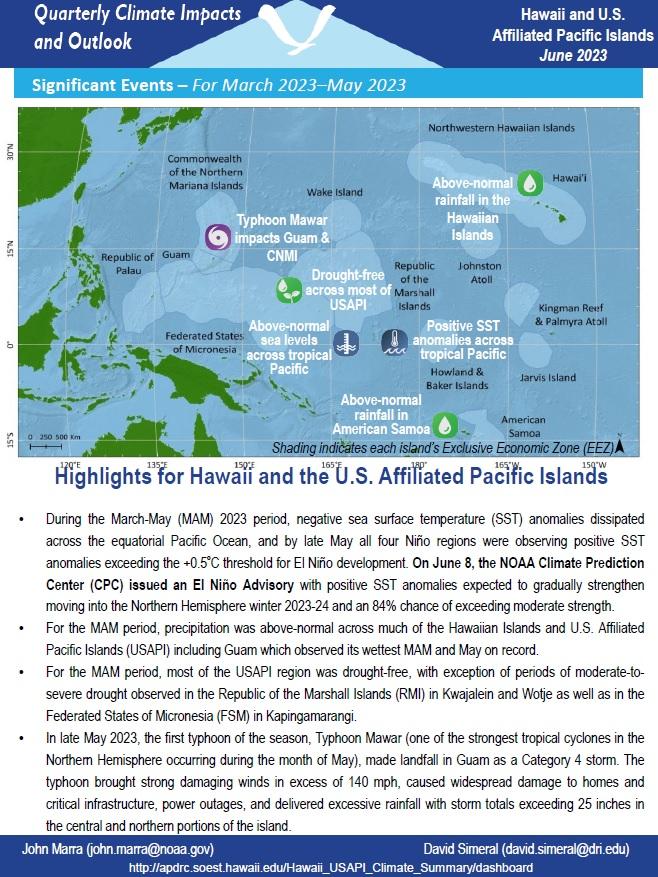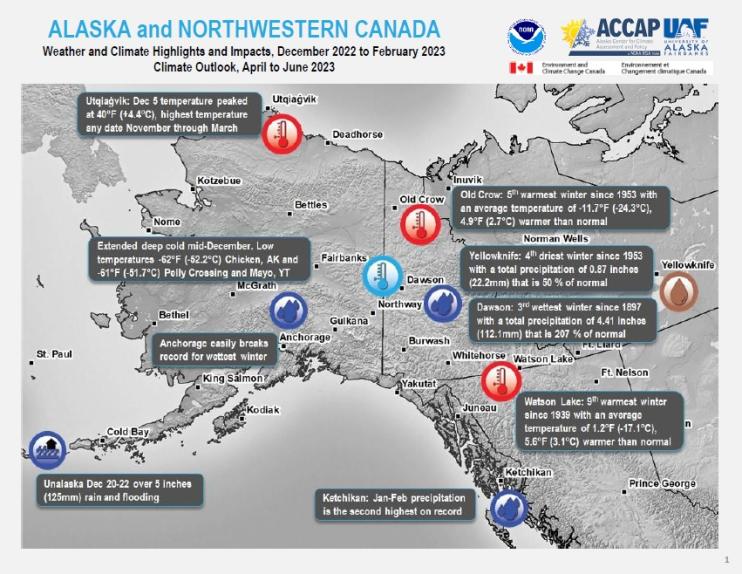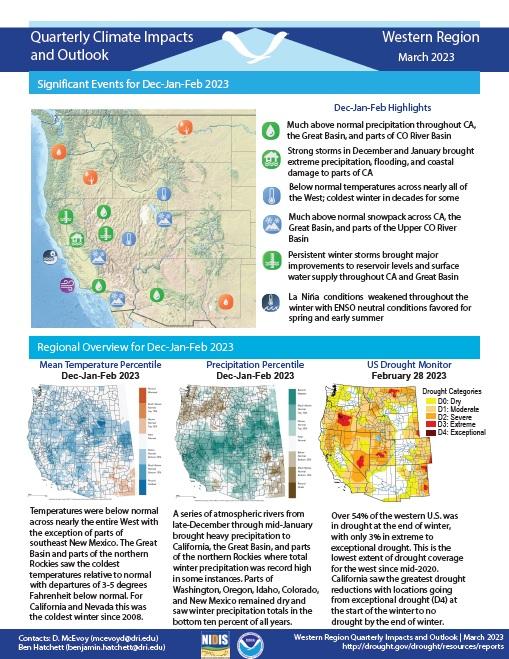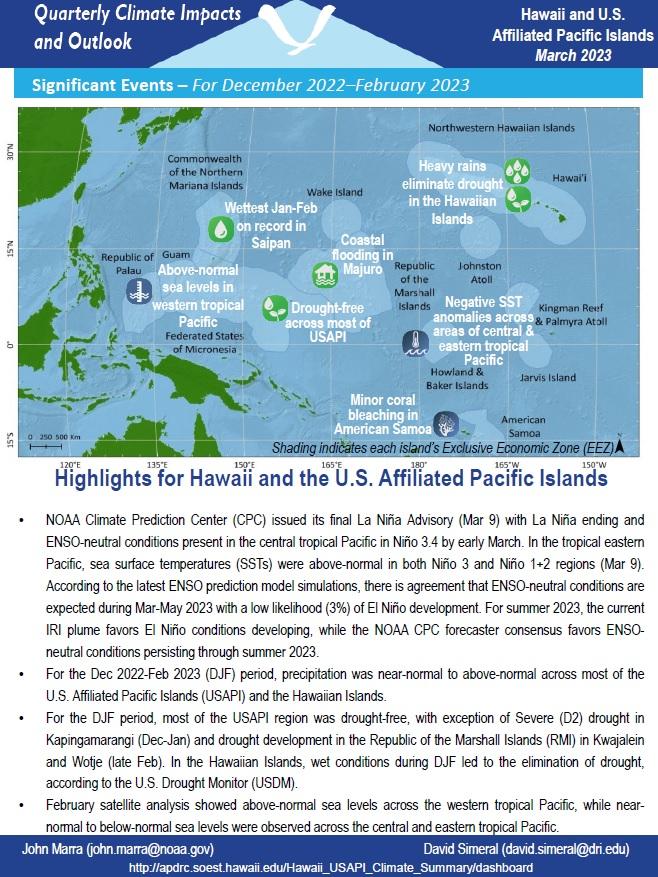Quarterly Climate Impacts and Outlook for Alaska and Northwestern Canada for June–August 2023, with an outlook for October–December 2023. Dated September 2023.
Summer was exceptionally warm across much of northwest Canada and portions of northern and eastern Alaska. For some areas, this was the warmest summer on record, as measured by the daily average temperature for the June through August period.
Quarterly Climate Impacts and Outlook for the Western Region for June–August 2023. Dated September 2023.
Temperatures were above normal across the Pacific Northwest and much of the Southwest. New Mexico, Washington, and Oregon had their third, fifth, and seventh warmest summer on record, respectively. Remnants of Hurricane Hilary brought heavy rainfall to southern California and the Great Basin in mid-August and contributed to much-above-normal total summer precipitation across the region.
Quarterly Climate Impacts and Outlook for the Pacific Region for June–August 2023. Dated September 2023.
For the June–August period, precipitation was above normal across much of the U.S.-Affiliated Pacific Islands, including Palau, Guam, Commonwealth of the Northern Mariana Islands, and in the Federated States of Micronesia. Conversely, drier-than-normal conditions were observed across areas of the Republic of the Marshall Islands, American Samoa, and the Hawaiian Islands.
This article in Earth, Atmospheric, and Planetary Sciences was the result of NIDIS-supported research. Learn more about this research.
Quarterly Climate Impacts and Outlook for Alaska and Northwestern Canada for March–May 2023, with an outlook for July–September 2023. Dated June 2023.
NOAA’s Regional Climate Services Program and partners created these climate outlooks to inform the public about recent climate impacts within their respective regions. Each regional report contains easy-to-understand language, and anyone can access them through the Drought Portal.
Quarterly Climate Impacts and Outlook for the Western Region for March–May 2023. Dated June 2023.
Temperatures were generally cool to cold west-wide, with notable cold anomalies along the California coast and in the interior Intermountain West. With few exceptions, spring was wetter than normal in the western U.S., largely owing to a wet March.
Quarterly Climate Impacts and Outlook for the Pacific Region for March–May 2023. Dated June 2023.
For the March–May period, precipitation was above-normal across much of the Hawaiian Islands and U.S. Affiliated Pacific Islands (USAPI) including Guam, which observed its wettest March–May and May on record.
Quarterly Climate Impacts and Outlook for Alaska and Northwestern Canada for December 2022–February 2023, with an outlook for April–June 2023. Dated March 2023.
NOAA’s Regional Climate Services Program and partners created these climate outlooks to inform the public about recent climate impacts within their respective regions. Each regional report contains easy-to-understand language, and anyone can access them through the Drought Portal.
Quarterly Climate Impacts and Outlook for the Western Region for December 2022–February 2023. Dated March 2023.
Temperatures were below normal across nearly the entire West with the exception of parts of southeast New Mexico. A series of atmospheric rivers from late December through mid-January brought heavy precipitation to California, the Great Basin, and parts of the northern Rockies where total winter precipitation was record high in some instances.
Quarterly Climate Impacts and Outlook for the Pacific Region for December 2022–February 2023. Dated March 2023.
For the December–February period, precipitation was near-normal to above-normal across most of the U.S. Affiliated Pacific Islands (USAPI) and the Hawaiian Islands.


